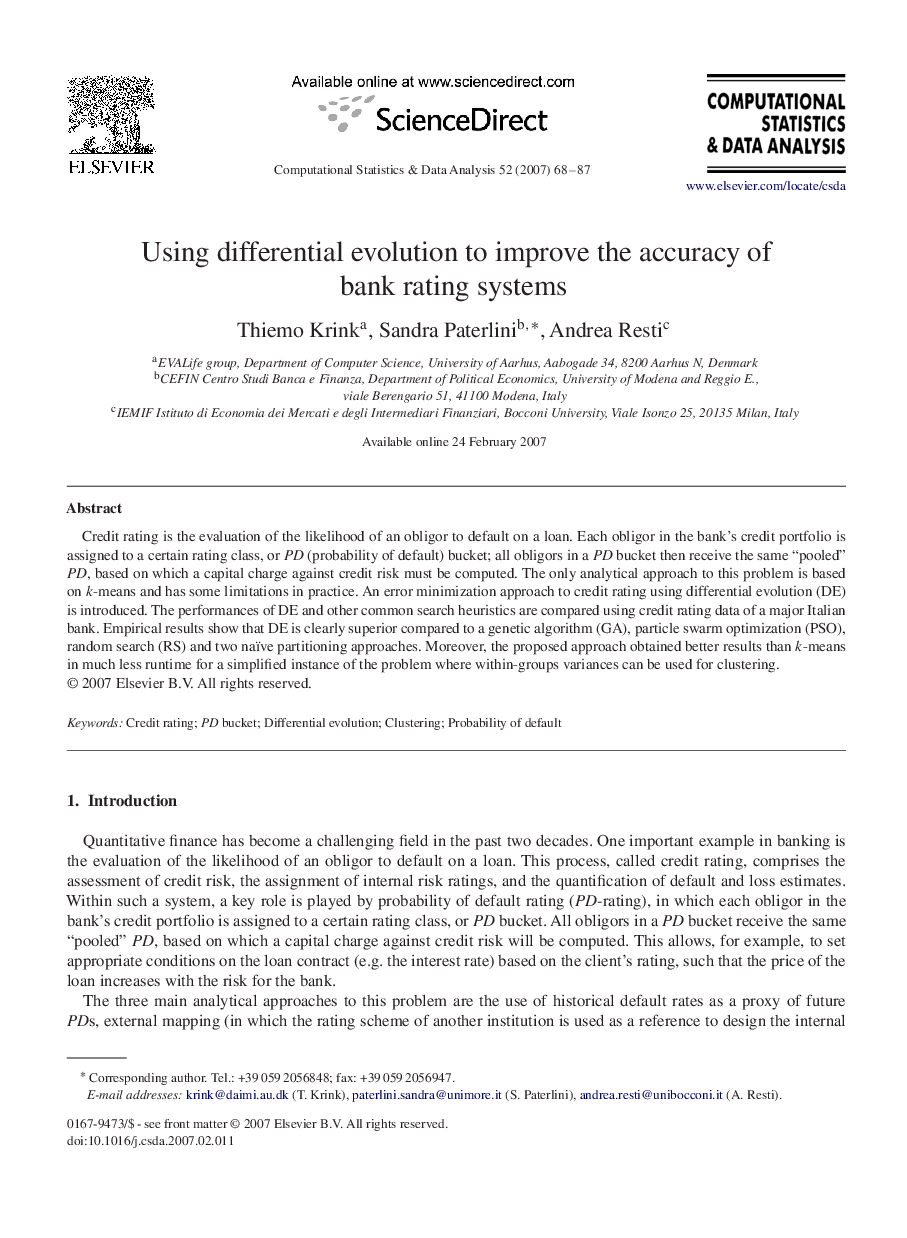| Article ID | Journal | Published Year | Pages | File Type |
|---|---|---|---|---|
| 416592 | Computational Statistics & Data Analysis | 2007 | 20 Pages |
Credit rating is the evaluation of the likelihood of an obligor to default on a loan. Each obligor in the bank's credit portfolio is assigned to a certain rating class, or PD (probability of default) bucket; all obligors in a PD bucket then receive the same “pooled” PD , based on which a capital charge against credit risk must be computed. The only analytical approach to this problem is based on kk-means and has some limitations in practice. An error minimization approach to credit rating using differential evolution (DE) is introduced. The performances of DE and other common search heuristics are compared using credit rating data of a major Italian bank. Empirical results show that DE is clearly superior compared to a genetic algorithm (GA), particle swarm optimization (PSO), random search (RS) and two naı¨ve partitioning approaches. Moreover, the proposed approach obtained better results than kk-means in much less runtime for a simplified instance of the problem where within-groups variances can be used for clustering.
